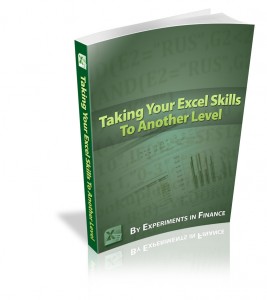Today, I sold off my position in ICF. I purchased my shares a more than a month ago at $96.35 and sold them at $102.40 for a gain after fees of 6.26%. Because I have some short-term capital-loss carryovers from way back when, I don’t expect to incur any capital gains taxes on this transaction.
What made me decide to sell now?
I had originally wanted to invest in REITs in order to diversify my investments (as mentioned previosly, we don’t own any property at all) and thought that by investing in commercial real rather than residential estate and dollar-cost averaging into an index, I’d addressed the riskiest aspect of REIT investing. But shortly writing about my investment, I was advised in a comment in the same post by a reader and more experienced value investor that a REIT index might not be the best way to go at this time.
That prompted me to delve much deeper into understanding REITs (due diligence I should have done earlier), because, as I’ve said many times before, I set up this site in large part to learn more about investing.
I noticed the overwhelming opinion on REITs, even those involved only in commercial real estate, was that they were overvalued and at significant risk of falling from their sky-high prices. In other words, REITs have been more akin to growth stocks in recent years, whose prices soaring ever upwards due to expectations that their growth rates will maintain. This buildup of expectations means that when bad news hits, growth stocks usually take a tumble. And it meant that REITs, and REIT indexes, probably weren’t suitable at this point for long-term investment.
Simply because other people have differing opinions about an investment I own isn’t itself enough to change my mind, but the arguments being made against REITs made a lot of sense, especially from the perspective of a value investor. Additionally, I realized from reading a multitude of other articles about REITs (such as this one entitled REIT delete) that I didn’t know enough about their financials and how to evaluate a REIT’s fundamentals. For example, I knew going in that REITs’ dividend yields (a main reason for investing in them) were down historically, but I didn’t realize they were barely covered. I was also unaware of the non-GAAP funds from operations (FFO) aspect of REITs in which depreciation is added back as a “phantom” expense.
In essence, if I ultimately made money with this investment, it would be due to luck. On the other hand, if I lost money, it would be out of ignorance. And, since ignorance I can control, but luck I cannot, I decided to lock in my serendipitous gains and exit my position after I realized my margin of safety on this investment was at great risk.
Once I get to the point where I’m comfortable with my knowledge about REITs, I may decide to reinvest in them at a later point in time.
***************************************************
Look Good at Work and Become Indispensable Become an Excel Pro and Impress Your Boss

***************************************************


All this industry consolidation’s great, but what’s next? | Experiments in Finance
[…] E-mini S&P repair credit Home Equity Loan Auto Insurance var site=”sm7ricemutt” « A Thanksgiving tale Exited my position in ICF (REIT ETF) » […]
StockReply
Thanks for the comment. Admission of ignorance is the beginning of wisdom! Seriously, keep questioning.
Regards
mapgirl
hm… I’ve wondered about dialing back my REIT investment for a while. I haven’t added anything to it in months. I’m thinking of liquidating it though since it’s had too good of a run. Now that prices are stalling in many areas, seems like a good time to get out. Thanks for the nudge to do my own due diligence!
Keepin’ it real: real estate funds again, this time international | Experiments in Finance
[…] I’ve been interested in learning more about real estate funds and REITs ever since I made my purchase of the US-based REIT ICF some months ago and then divested of it after receiving advice from readers and realizing I was buying something I really didn’t understand. One reader more knowledgable than I recommended looking internationally instead. […]